Óbidos
When we get away from our big house renovation, we travel around Portugal in search of the treasures this rich and exciting country has to offer.
Óbidos is a wonderful, well-preserved example of medieval architecture and its streets, squares, churches and castle are a popular tourist destination situated an hour North of Lisbon in the west of the Centro region of Portugal.
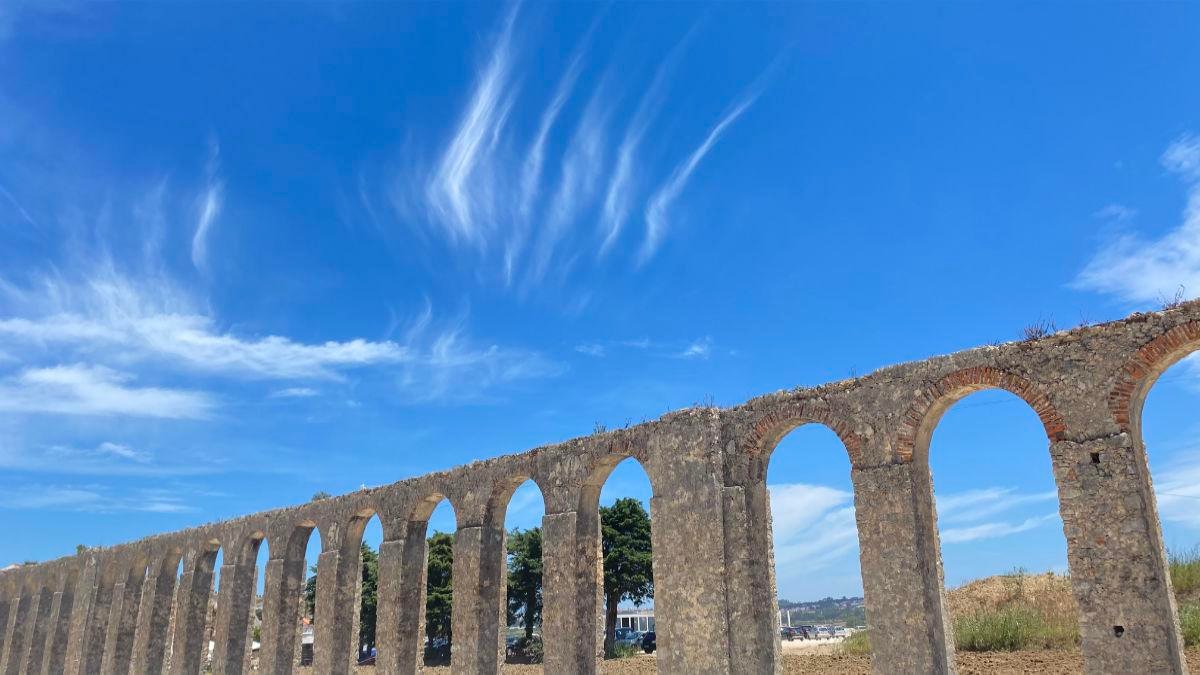
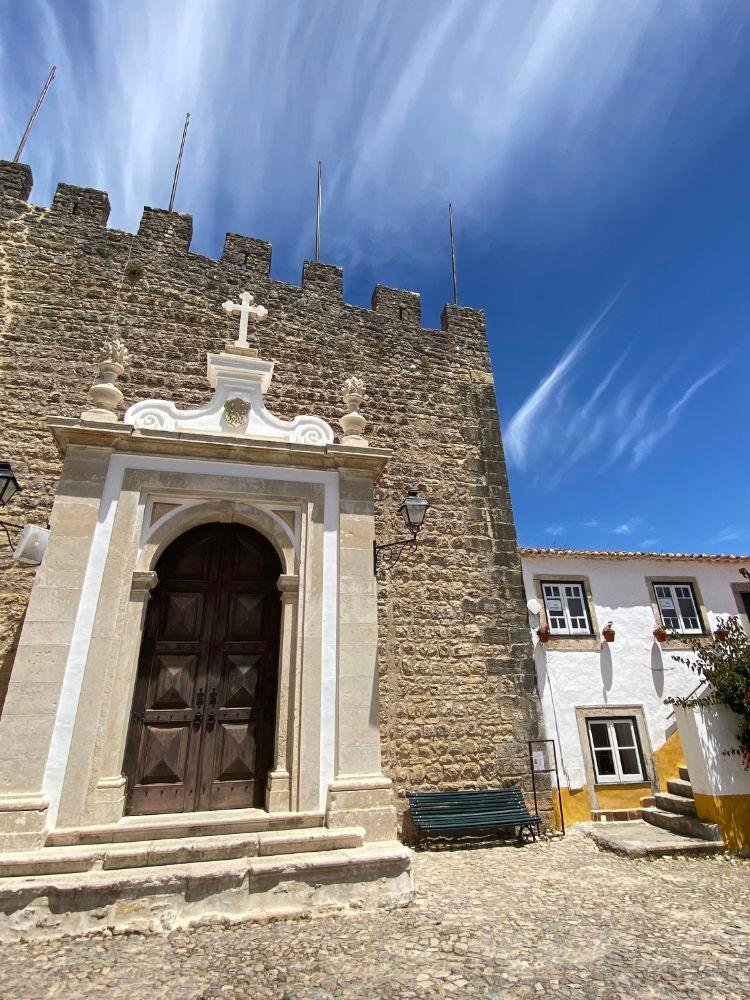
Walking into Óbidos
Porta da Vila is the main town gate entering Óbidos. As with other gothic castles in Portugal, the entrance has a staggered gateway which prevented a direct charge on the town by cavalry.
Between the gateways is a balcony used as a small, private chapel. The walls are adorned with blue and white tile panels telling the store of the Passion of Christ. The tiles are dated to 1740. The painted ceiling above the tiles illustrates a crown of thorns.
Rua Direita
Once through the main gates you walk out onto Rua Direita, the main street running through Óbidos. The street is norrow, vibrant and full of colour and intrigue. You’ll find shops, cafe bars restaurants and a few galleries to stop you in your tracks!
From May to December there is an explosion of colour on the street with the flowering of the many Bougainvillea shrubs and trees and Trumpet Vines.
The thorny ornamental Bougainvillea vines, bushes, and trees have amazingly bright purple (paper-like) petals that really pop! against the white-washed walls and a deep azule sky.
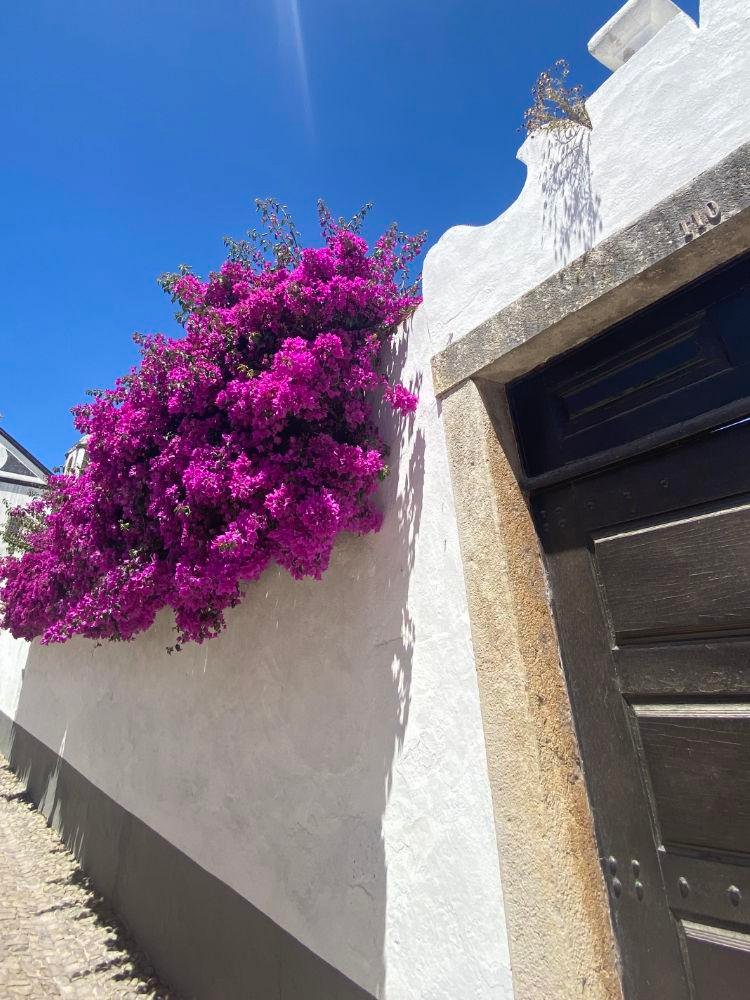
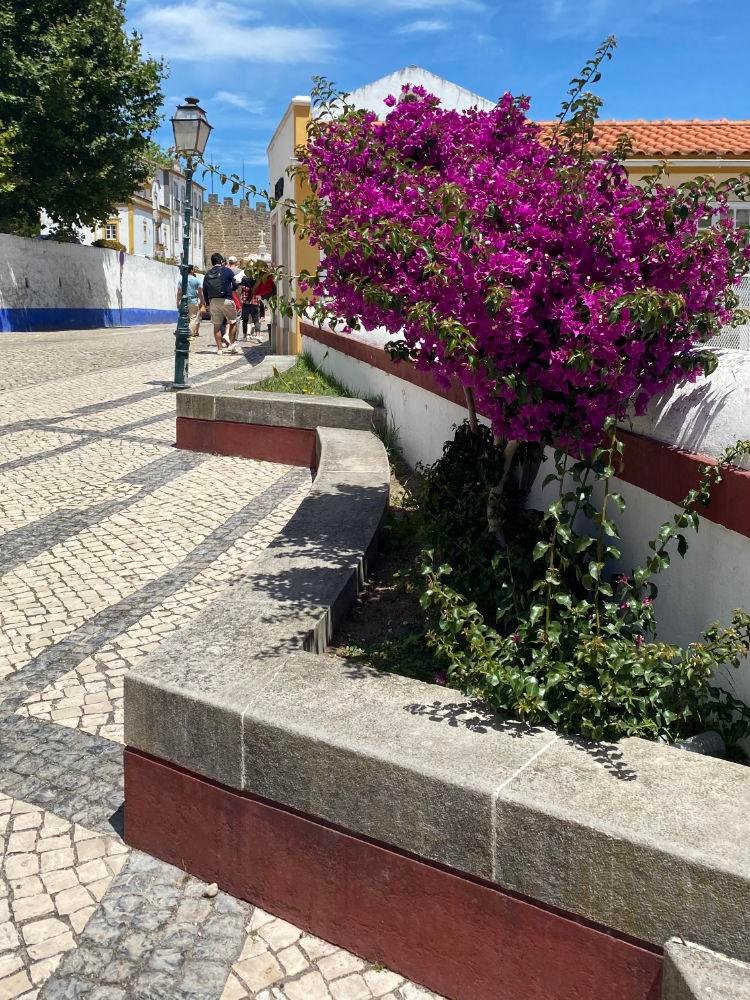
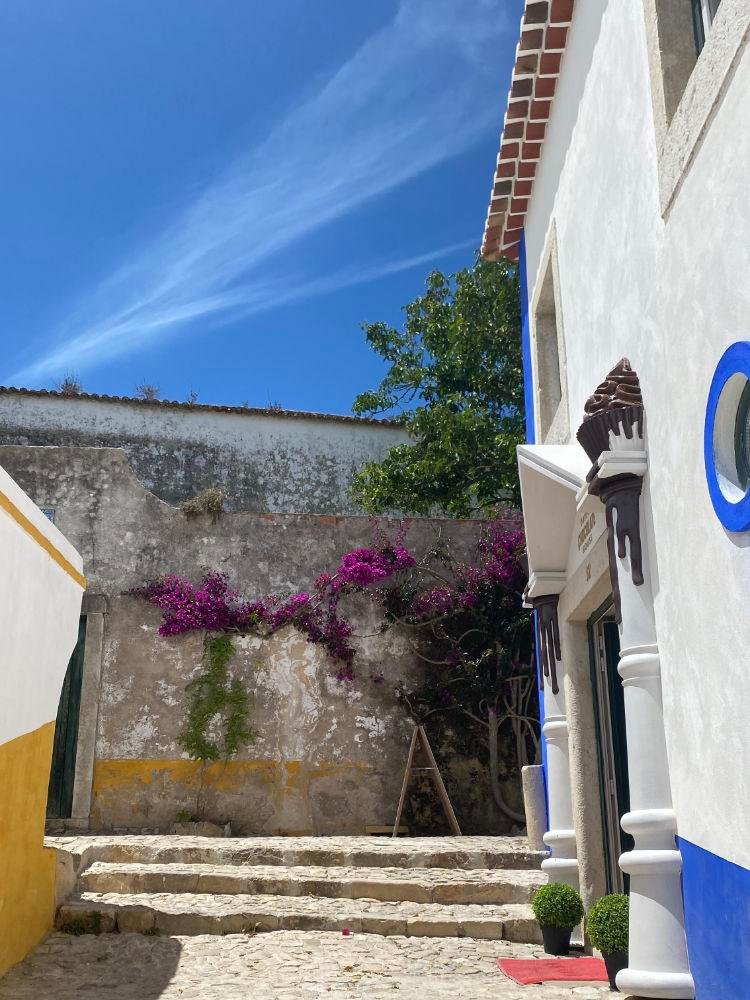
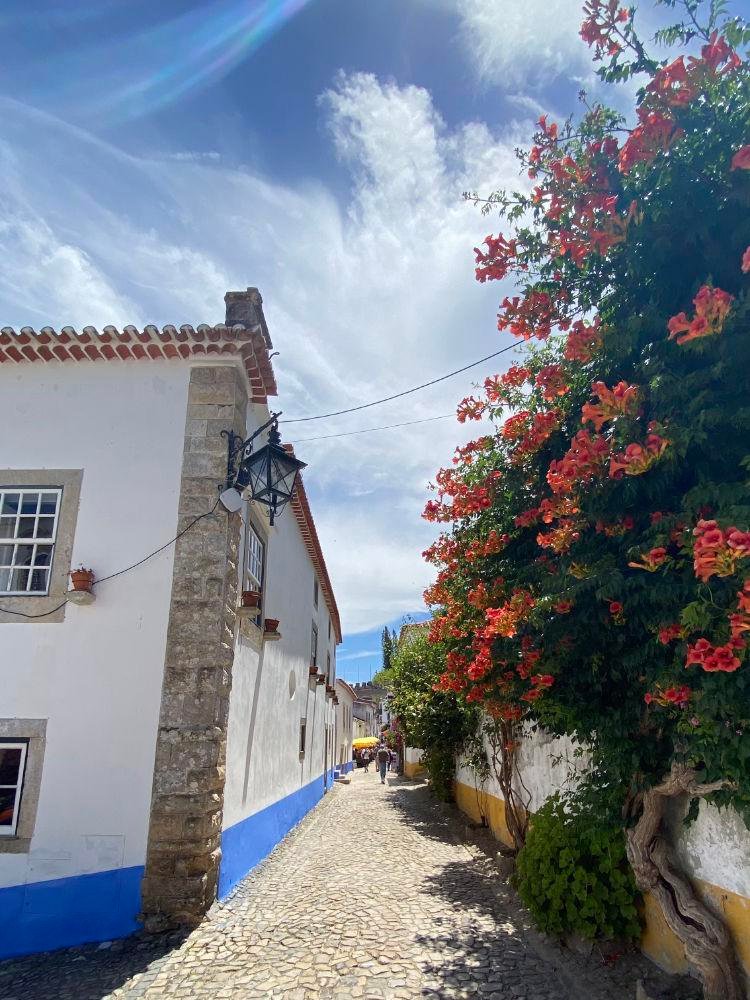
Ginja de Óbidos com Chocolate
You can’t pass through Óbidos without trying the locally famous cherry liqueur shot ‘ginjinha‘ served in a chocolate cup (vegan cups of course for us!).
Ginjinha originated in the 17th-century. Monks from the region combined Morello cherries and brandy. It was consumed as an aperitif or after dinner.
We did of course try some, but were so busy drinking and enjoying the chocolate that we forgot to take a picture. We’ll update the page next time we visit.

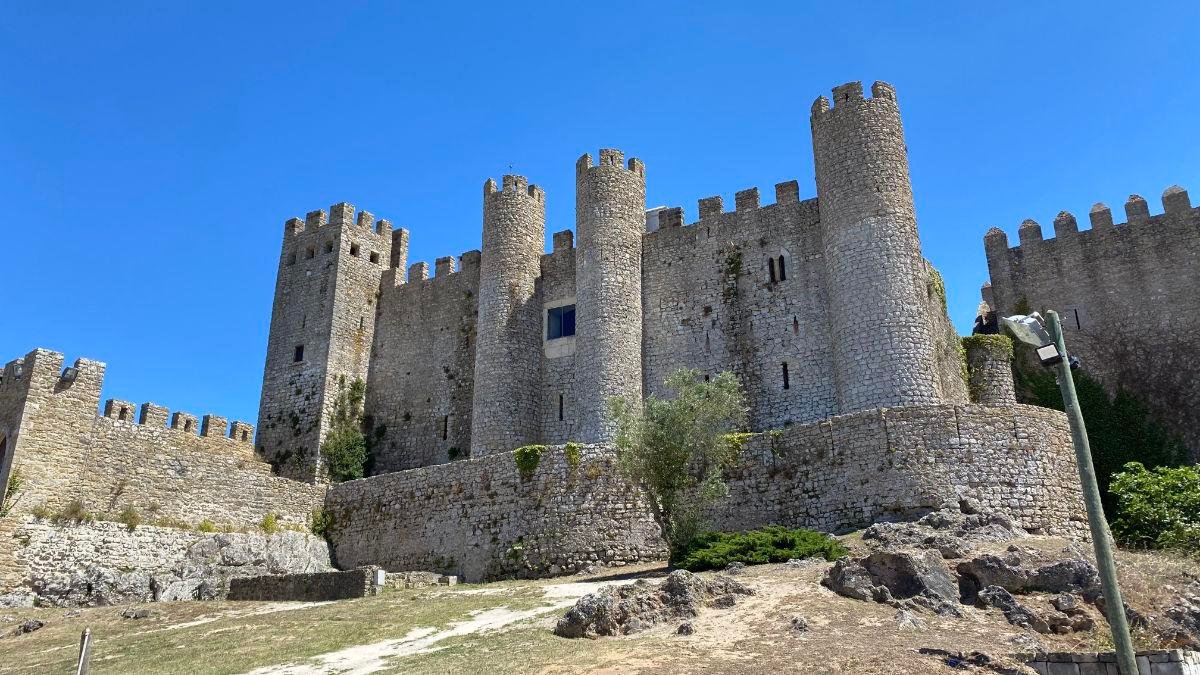
Castelo de Óbidos
Obidos’ castle dates back to Portugal’s Roman occupation. Its current layout is of Moorish design though; the result of reconstruction and restoration works carried out through history by various Portuguese kings, starting in circa 1148 under the first King, Afonso I.
The main towers of the castle were built in 1375. As well as its military function, Óbidos Castle also served as a royal palace.
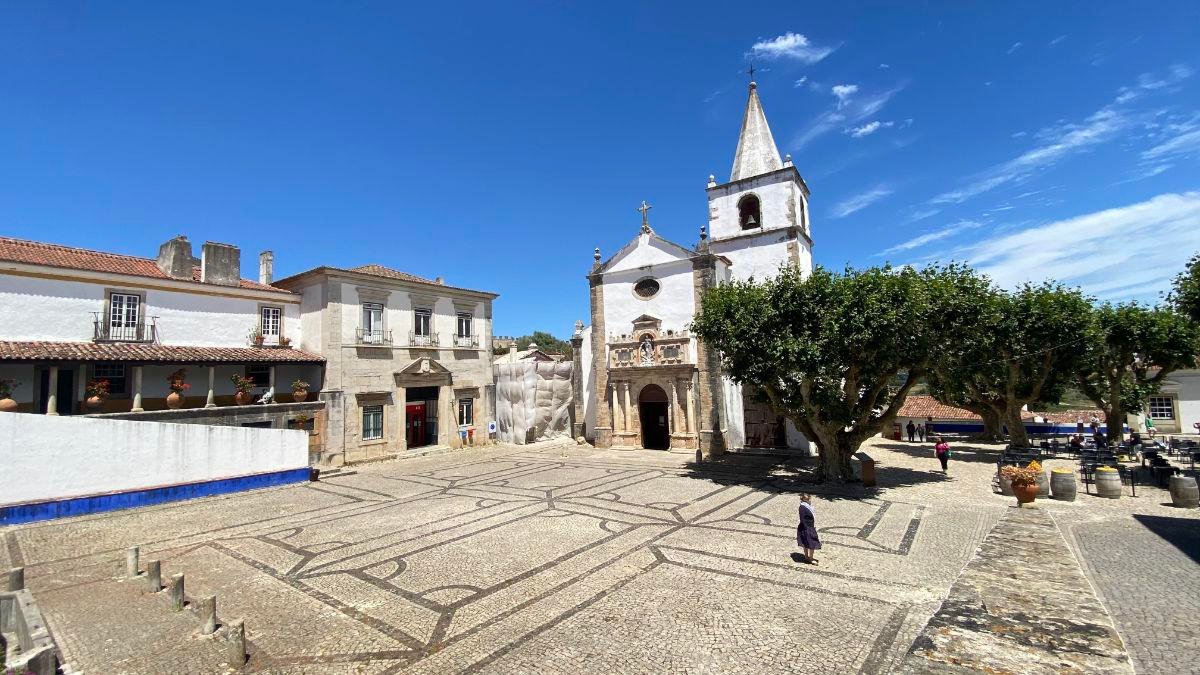
Old Arms Square
The town’s main festivities now take place in the large outdoor terraced area known as the Old Arms Square. The square sits behind tha castle and boasts spectacular views across the Óbidos countryside.
The former palace (now the restored main hotel in Óbidos) was almost completely destroyed in an earthquake in 1755.
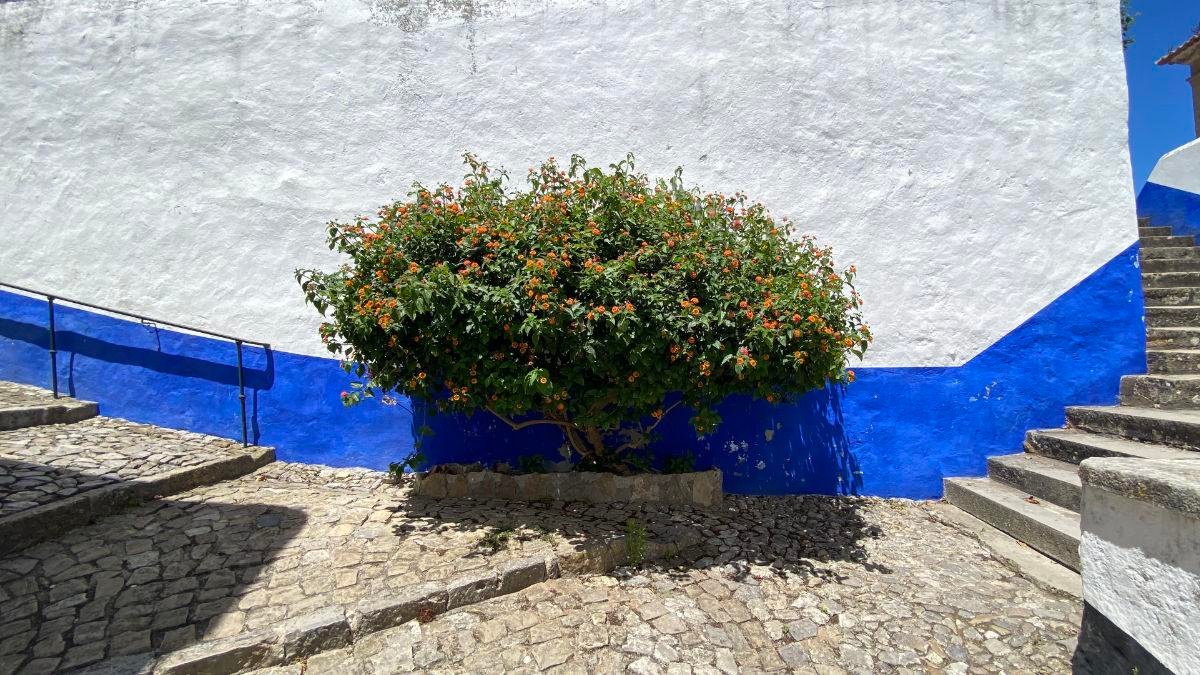
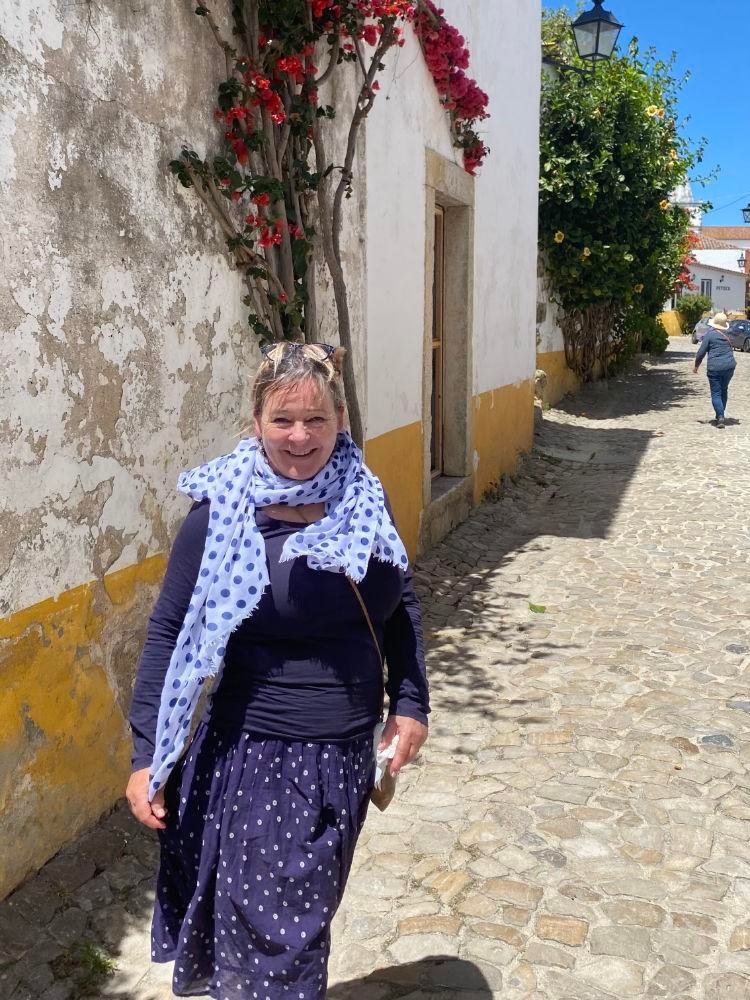
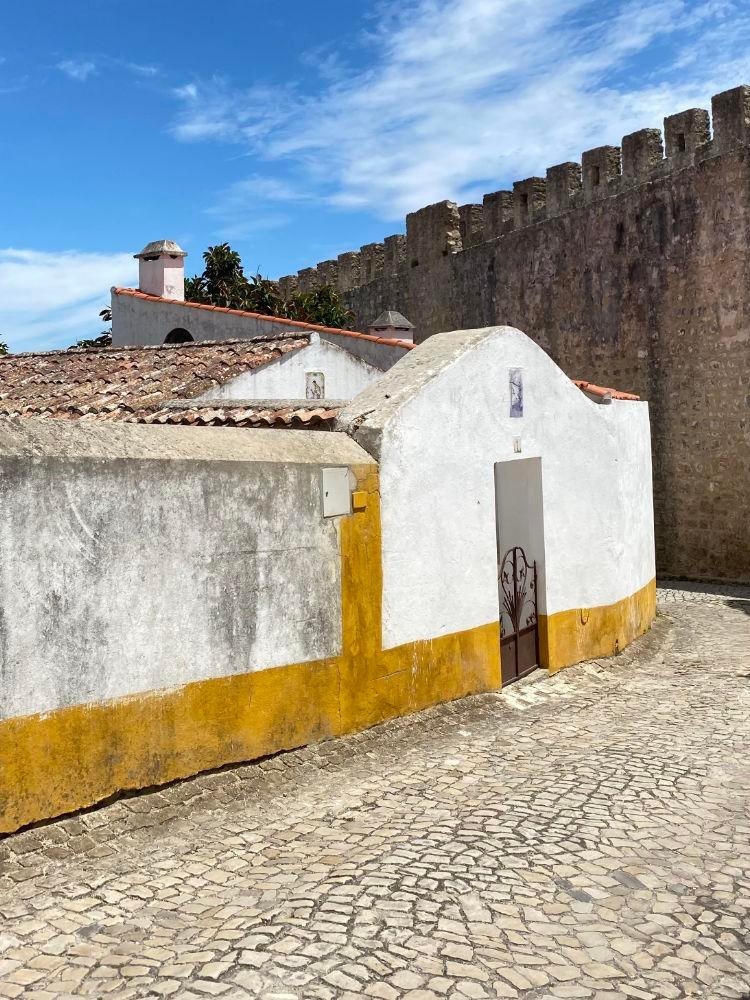
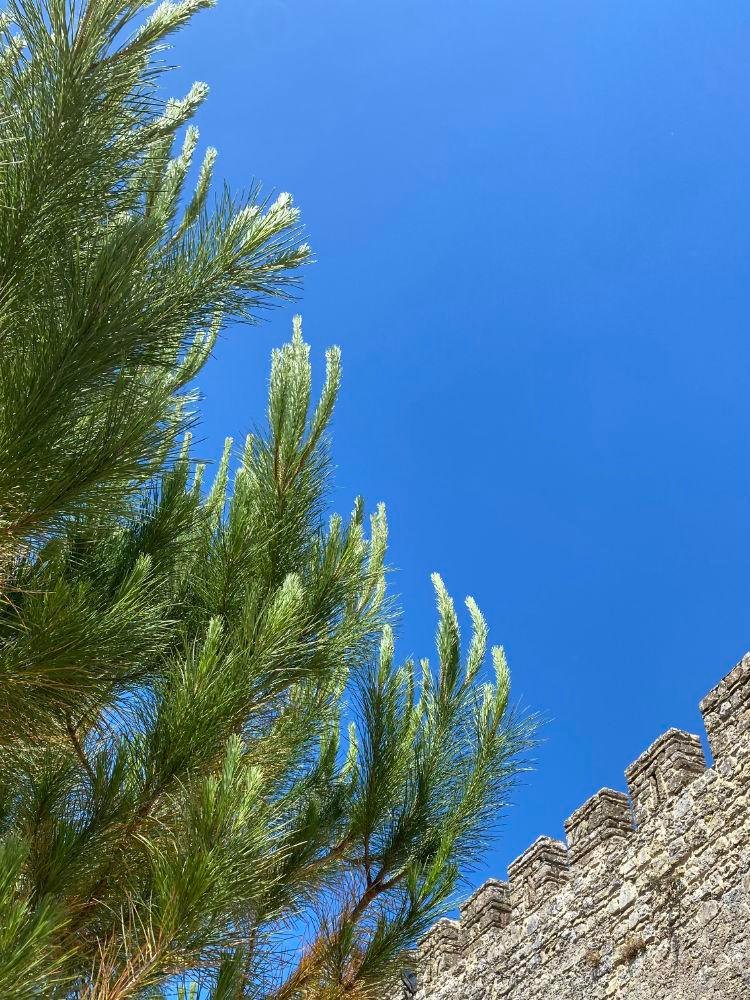
OK, let's hear it!
We have so much to learn, discover and enjoy here in beautiful Portugal.
Please share your comments and recommendations with us and be a part of our big house renovation journey.
0 Comments